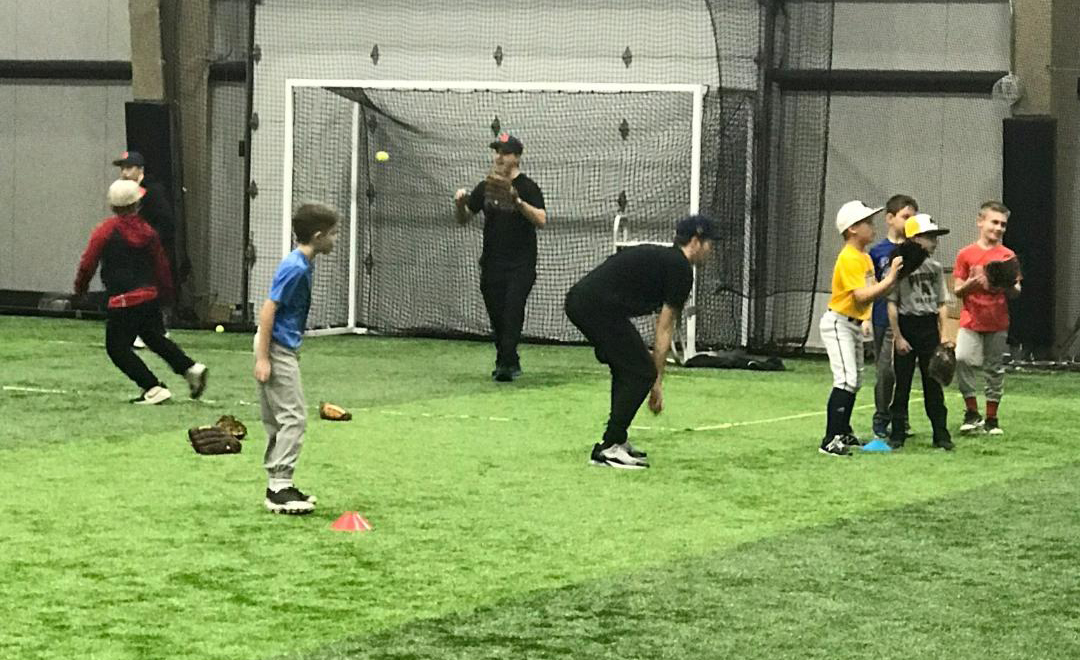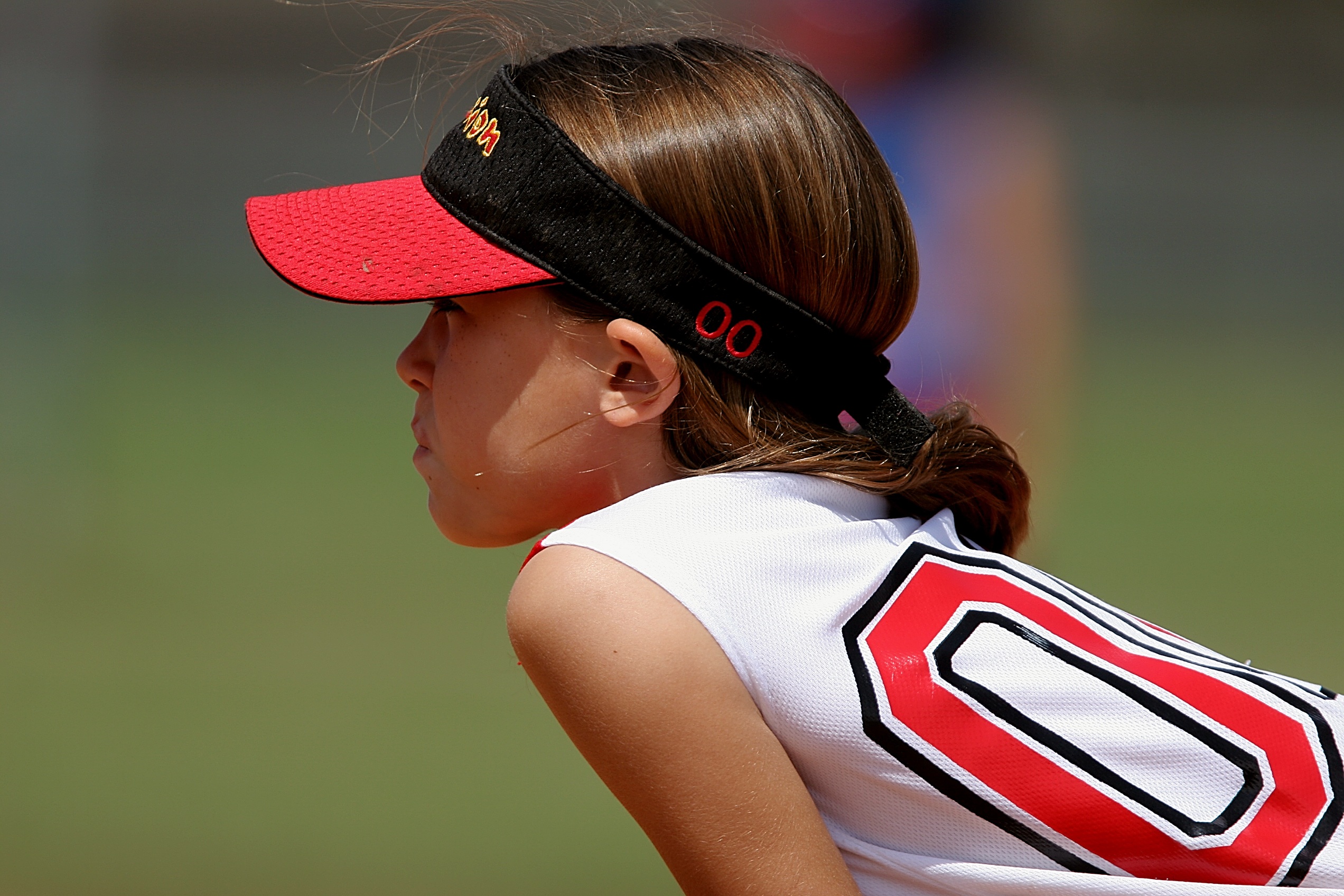Main Points
For young baseball players, the ability to concentrate is crucial for both playing well and enjoying the game.
By setting achievable goals that are clear, young players can stay motivated and focused.
Young players can improve their focus during and before games by using mindfulness practices and pre-game routines.
Physical drills and exercises can help reinforce the mental skills needed for in-game concentration.
Visualization techniques and positive self-talk are powerful tools that young athletes can use to develop a strong mental game and resilience.
Focus Strategies for Young Baseball Players
As someone who’s watched many young players run the bases, I can tell you that the key to success in youth baseball isn’t just about how hard you can hit or how fast you can run. It’s about the focus you bring to every pitch, every at-bat, and every inning. Let’s explore how we can help our young athletes improve their concentration and bring their best game to the field.

Unlocking Potential with Concentration
Picture this: your child steps up to the plate, the crowd’s cheers fading into the background, their heart racing, and yet, they’re completely focused on the pitcher’s mound. That’s the zone we want our young athletes to be in. It’s not just about blocking out distractions, but also about being fully present in the moment, ready to react with precision and confidence.
Essential Elements for On-Field Concentration in Kids’ Baseball
Good focus during a game begins with a strong mindset off the field. It’s about preparing your mind to handle whatever the game might bring. Here’s what you need:
Setting Goals: It’s important for kids to have a target, whether it’s raising their batting average or perfecting a new pitch.
Being Mindful: Techniques such as deep breathing and visualization can help players stay relaxed and focused.
Positive Self-Talk: Positive affirmations can increase a player’s confidence and concentration during high-stress moments.
Training Resilience: Teaching kids how to recover from setbacks keeps their mind on the game.
Stepping Up to the Plate: Techniques to Enhance Focus
Now, let’s dive into the specifics of how we can assist our players in improving their focus during the game. It all comes down to practice, consistency, and a touch of strategy.
Getting Started: Concentration Fundamentals
Before we begin, we must establish a foundation. Here’s how we can do it by focusing on the mental game:
Start with short, simple tasks during practice that require focus, like catching pop flies or fielding ground balls.
Gradually increase the complexity and length of these tasks as players improve their concentration.
Encourage players to set personal focus goals for each practice and game, such as “I will watch the ball all the way onto the bat every time I swing.”
Before the Pitch: Pre-Game Mindset Preparation
What players do before the game can have a huge impact on their focus. A good pre-game routine might include:
An active warm-up to get the blood pumping and the senses alert.
Mental visualization of what they hope to accomplish in the game.
Quiet time to practice deep breathing and rid the mind of distractions.
These steps help players turn on their ‘game brain’, focusing on the task at hand and ignoring anything not related to baseball. And remember, consistency is important. The more often players do these pre-game routines, the more second nature they’ll become. For more insights on enhancing the mental game in youth players, explore additional strategies and tips.
Exercises to Enhance Concentration During the Game
Alright, let’s discuss exercises. Any skill improvement is heavily reliant on exercises, and focus is no different. We’re not just doing this for the sake of doing it; we’re conditioning the mind to remain focused.
One of the most effective drills is the ‘Ball Transfer Game’. It involves pairing up the players and having them stand about five feet apart, transferring a baseball back and forth. It sounds easy, right? Here’s the twist: they must do it without using their gloves, and as they get better, they should increase the distance. This drill forces them to keep their eyes on the ball, improving their hand-eye coordination and focus.
Encourage players to try ‘Stare Downs’ with a teammate, where they balance on one foot while focusing on a spot on the baseball. It’s a fun way to challenge their focus and balance.
Try playing ‘Silent Ball’, a game where players have to catch and throw the ball without using words, relying only on their concentration and visual cues.
During batting practice, use the ‘Color Call Out’ game. The coach or another player calls out a color, and the batter can only swing at pitches that have a sticker of that color on the ball.
These games aren’t just about improving physical skills; they’re about teaching players to be in the moment, alert, and ready to act. They learn to ignore distractions and focus on what’s important—the ball.
Brain Boosters: Advanced Concentration Techniques for Serious Pla

Now, for those athletes who are really serious about upping their game, let’s talk about some advanced techniques. These aren’t for the faint of heart; they’re for the players who dream of clutch hits and game-saving plays.
A great method to try is ‘The Countdown’. Ask the children to subtract three from 100 and continue subtracting three from the result while they’re practicing batting. This makes them concentrate on two things at once, but they still need to swing accurately. This type of multi-tasking gets them ready for the split focus they’ll need during a game.
One other method is called ‘Pitcher’s Duel’. One kid pretends to be a batter, while another kid pretends to be a pitcher winding up for a throw. The ‘batter’ has to shout ‘ball’ or ‘strike’ depending on the hand movements of the ‘pitcher’, which helps improve their prediction skills and concentration.
These advanced drills are meant to push players out of their comfort zones and train their minds to stay focused even under pressure. Because, let’s be honest, games aren’t won when everything is going smoothly—they’re won in the moments that test us the most.
Mastering Visualization for Young Athletes
Visualization may seem like a modern idea, but believe me, it’s a game-changer. It’s about seeing success before it happens. Have your players close their eyes and imagine themselves succeeding in various scenarios on the field. They should feel the bat connecting with the ball, hear the sound of the crowd, and experience the emotion of the moment. This mental rehearsal primes their brain for actual performance.
How Positive Self-Talk Can Improve Performance in Youth Sports
Let’s talk about the voice in our heads. A good player can become a great player with positive self-talk. It’s about changing “I can’t” to “I can” and “I missed” to “I’ll hit the next one”. This change in mindset can make a world of difference when the game is on the line.
Help your players understand the importance of speaking to themselves the way they would to their best friend – with kindness, encouragement, and forgiveness. If they miss a catch or strike out, remind them to say “No problem, I’ll get it next time” instead of focusing on the error. Positive self-talk leads to resilience, and resilience leads to champions.
Improving Performance with Resilience Training
Resilience is more than just bouncing back; it’s about bouncing forward. Resilience training teaches players to learn from their mistakes and use them as motivation for improvement. It’s the difference between a slump and a learning curve.
Begin building resilience by setting goals that are slightly out of reach, but can be accomplished with hard work. If players fall short, emphasize the lesson learned rather than the failure. Ask them, “What did you learn?” rather than “What went wrong?”
Try this exercise to help build resilience: after a difficult game, ask the players to write down three things they think they did well and one thing they would like to do better next time. This encourages them to recognise their own strengths while still focusing on areas for improvement.
Encourage the kids to maintain a ‘resilience journal’ to monitor their growth and reflect on their obstacles.
During practice, incorporate a ‘mistake ritual’, such as dusting off their shoulders, to physically and mentally release mistakes.
Use role-playing to replicate adversity and rehearse coping mechanisms in a secure, managed setting.
Resilience isn’t just about sports; it’s a life skill. By instructing our young athletes on how to deal with the highs and lows of baseball, we’re preparing them for success in all aspects of life.
Home Run Heroes: True Tales of Triumph
Success speaks volumes. Here are some young players who have used their mental prowess to their advantage.
A Young Hitter’s Journey to a Stronger Mental Game
Let’s talk about Alex, a 12-year-old who loves baseball but whose batting average didn’t match his enthusiasm for the game. He often found himself frustrated at the plate—until he discovered the power of visualization. Every night, Alex would picture himself hitting line drives and home runs. He imagined his stance, his swing, and the ball flying over the fence. By the end of the season, Alex’s average had improved by more than 100 points. He was more confident than ever, and his passion for the game was stronger than ever.
From Last Pick to Team Leader: A Story of Mindfulness
And then there’s Jamie. She was always the last one chosen for the team, often missing the ball with her glove. But when she started practicing mindfulness, everything changed. Jamie learned to use her breath to calm her nerves, to ground herself before each play, and to focus only on the ball. By the end of the season, she wasn’t just playing; she was leading her team to victory.
FAQ
What Are Some Easy Focus Drills for Young Baseball Players?
Easy and efficient drills include ‘Color Call Out’ during batting practice, ‘Silent Ball’ for non-verbal communication, and ‘Stare Downs’ to focus on a spot on the baseball. These exercises enhance focus and improve performance during the game.
What Can Coaches Do to Help Players Maintain Concentration During a Game?
Coaches can help players maintain concentration by setting clear objectives, creating consistent pre-game rituals, and cultivating a nurturing environment that highlights development and learning from errors. Incorporating regular concentration exercises also aid in keeping focus during games.
How Does Positive Self-Talk Influence Baseball?
Positive self-talk is a key part of a robust mental game. It helps players keep their confidence, resilience, and focus, particularly in high-stress situations. Fostering positive self-talk can change a player’s performance and their attitude towards challenges both on and off the field.
How Often Should Mental Skills Training Be Practiced?
Mental skills training should be a regular part of practice sessions, ideally a few times a week. Consistency is key to building and maintaining the mental toughness needed for high-level performance in baseball.
Does Concentration Skills Carry Over into Other Areas of Life?
Definitely, the concentration and discipline that is developed through baseball focus techniques can help improve school performance, personal relationships, and the ability to manage stress in different areas of life.
Can Kids Overwork Themselves Mentally?
Just as it is with physical training, kids can overdo it mentally. It’s all about balance. Make sure kids have plenty of time to rest and participate in other activities they enjoy to avoid mental fatigue and burnout.
It’s the bottom of the ninth, and you want to help your young ballplayers go from good to great. To do that, you need the right resources. The Complete Hitter Starter Program is a great place to start. It’s full of drills, tips, and strategies that can help your kids improve their mental game and reach their full potential.
Leave a Reply